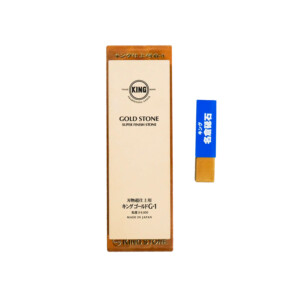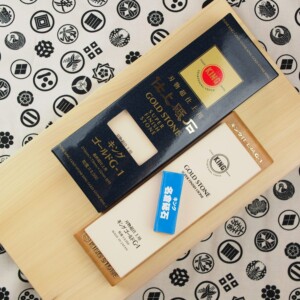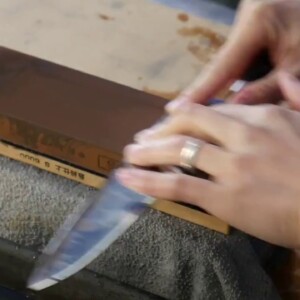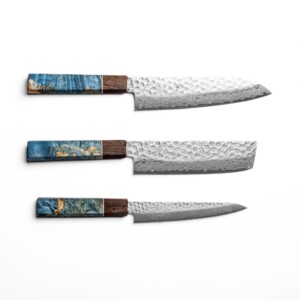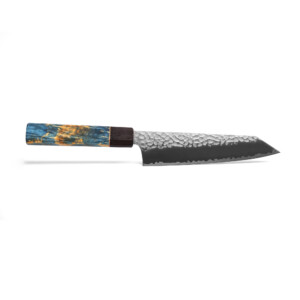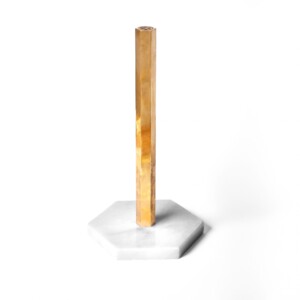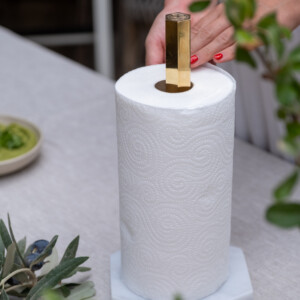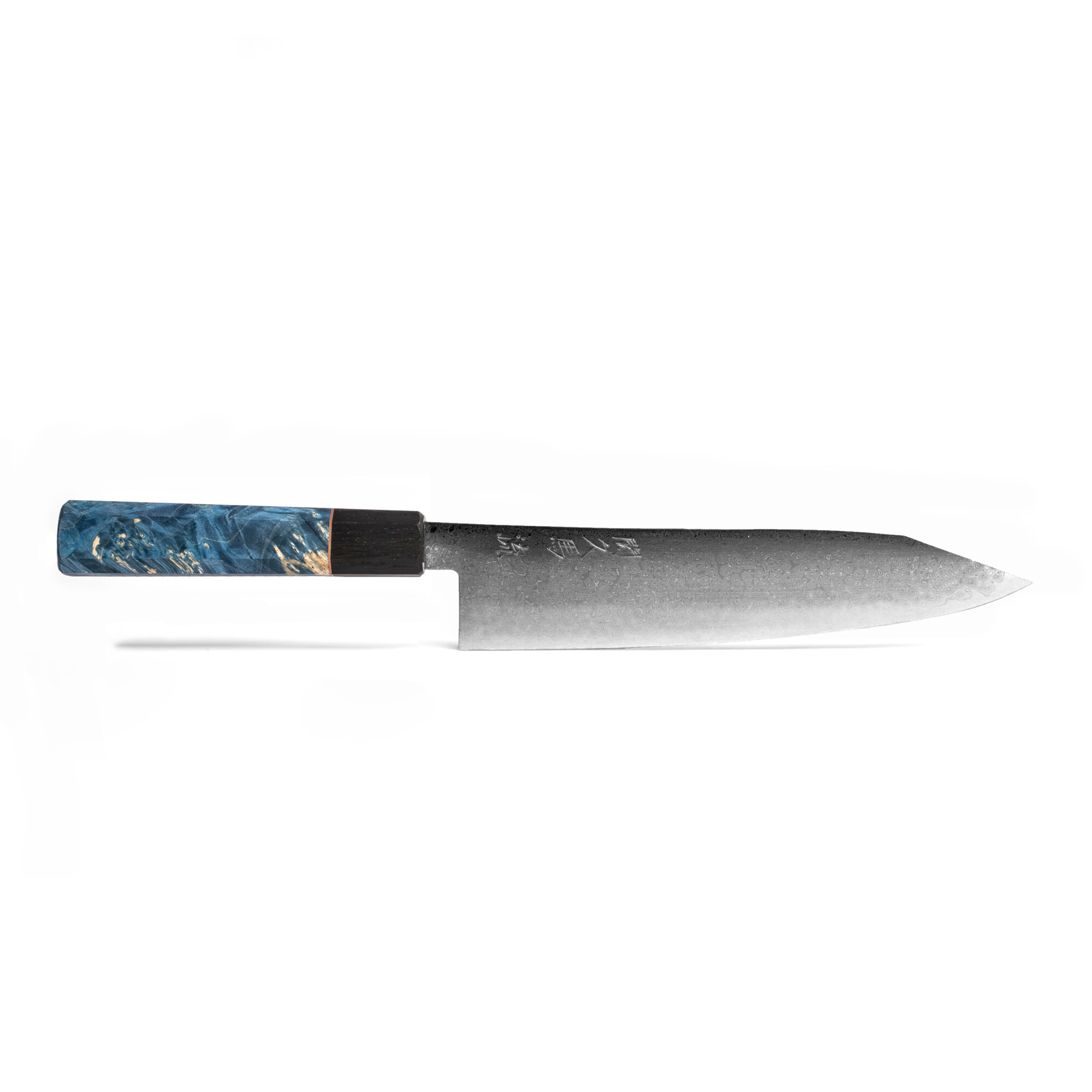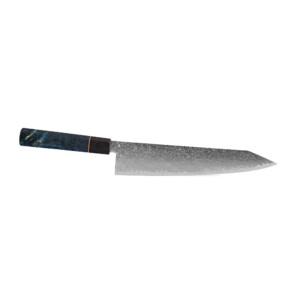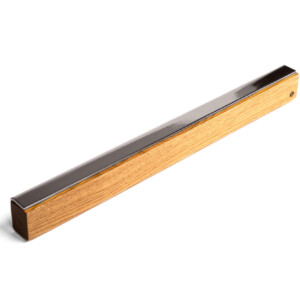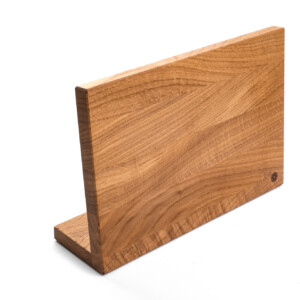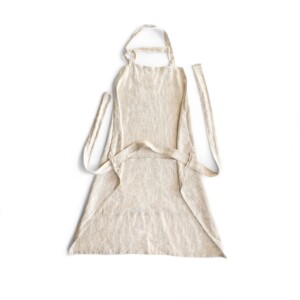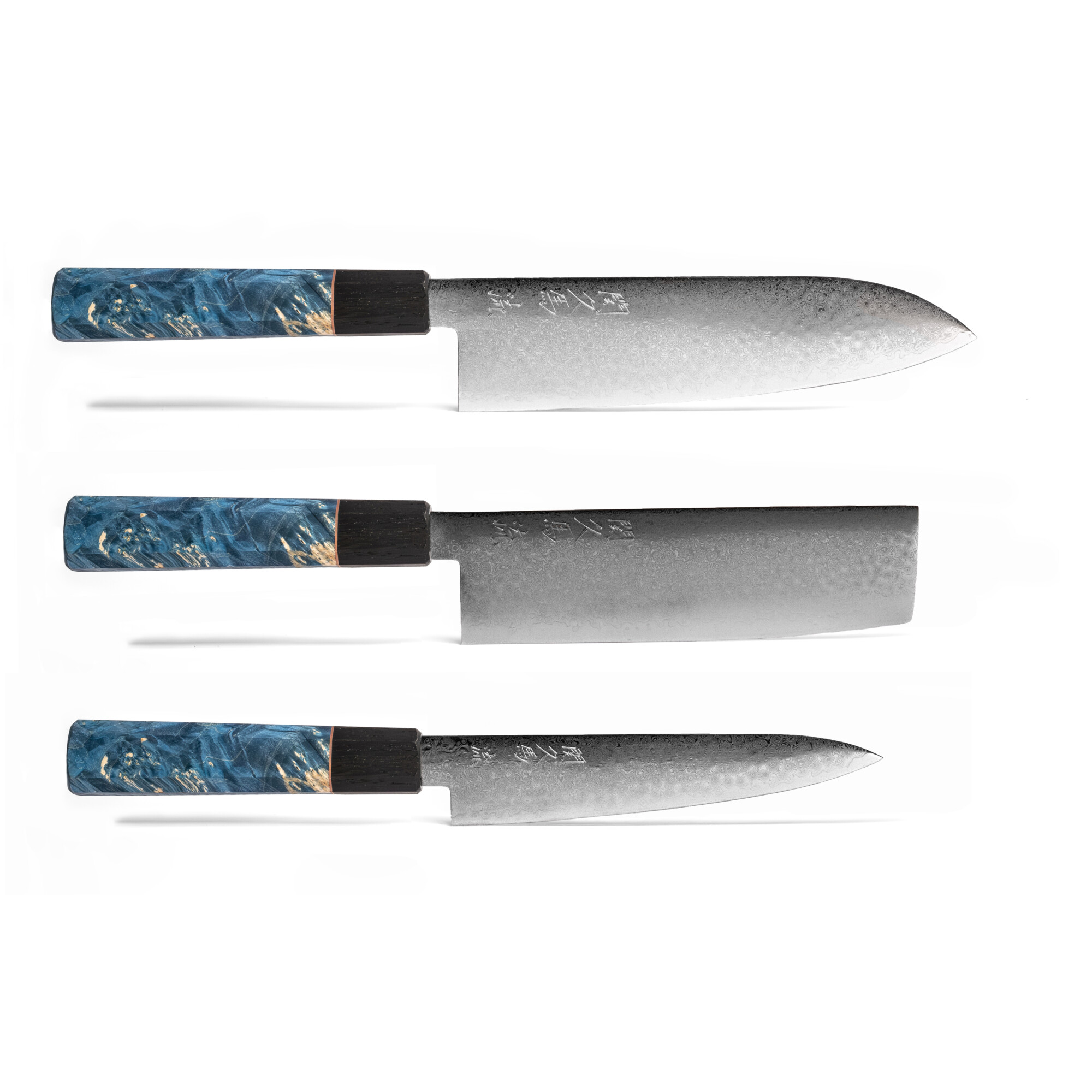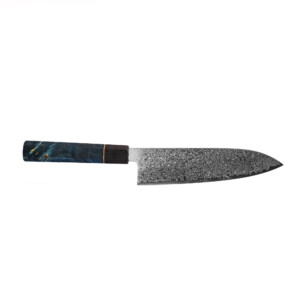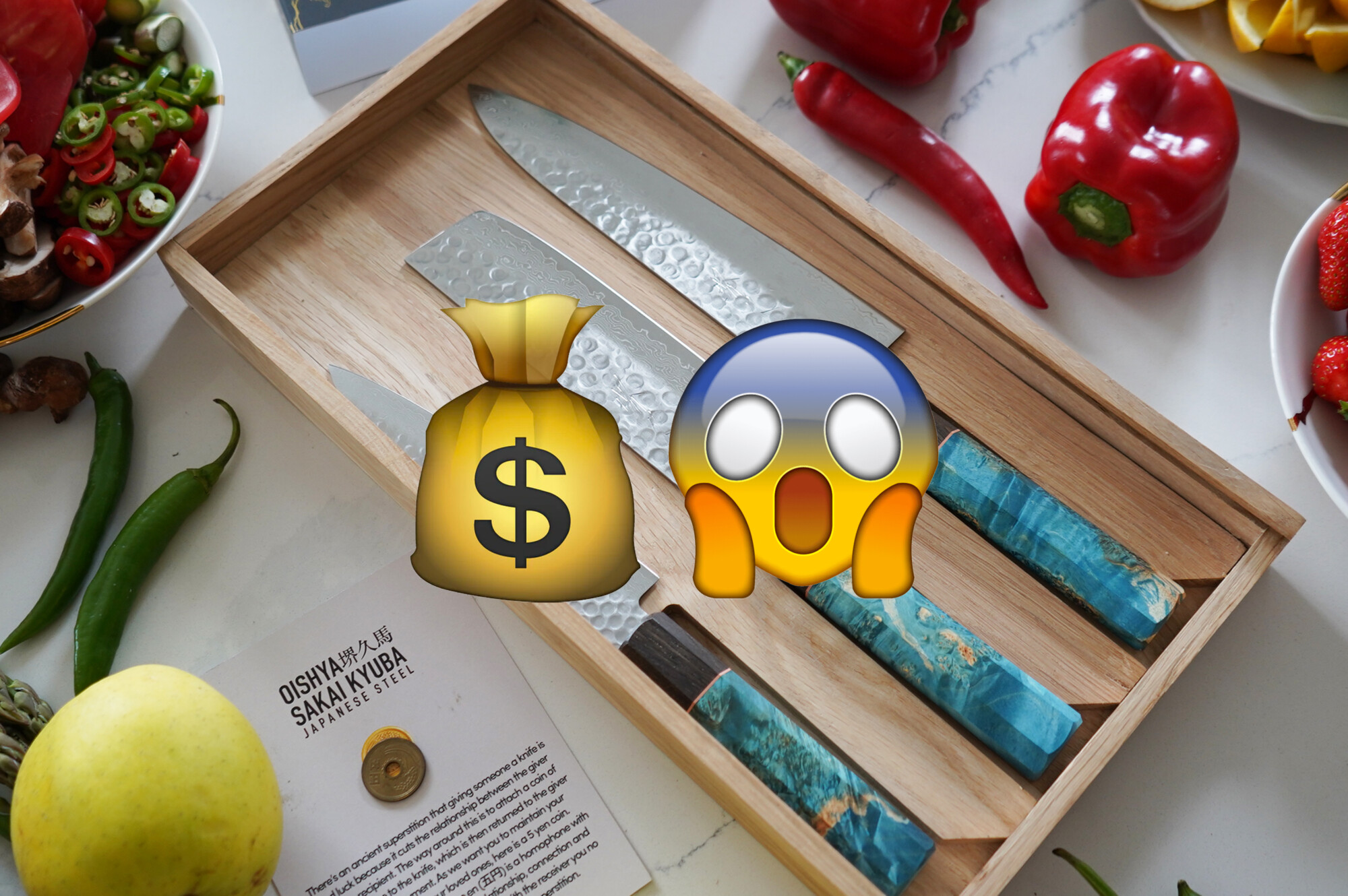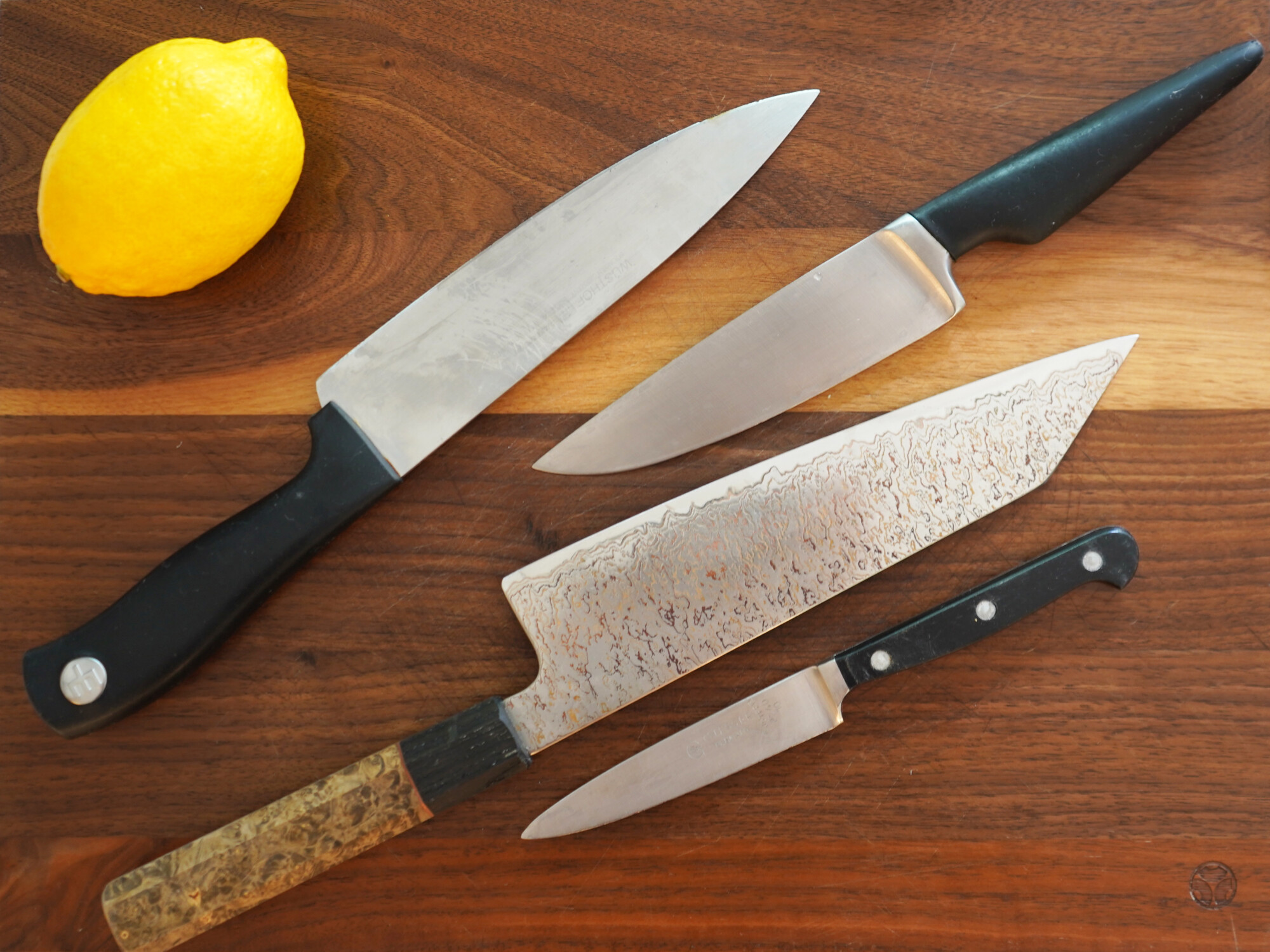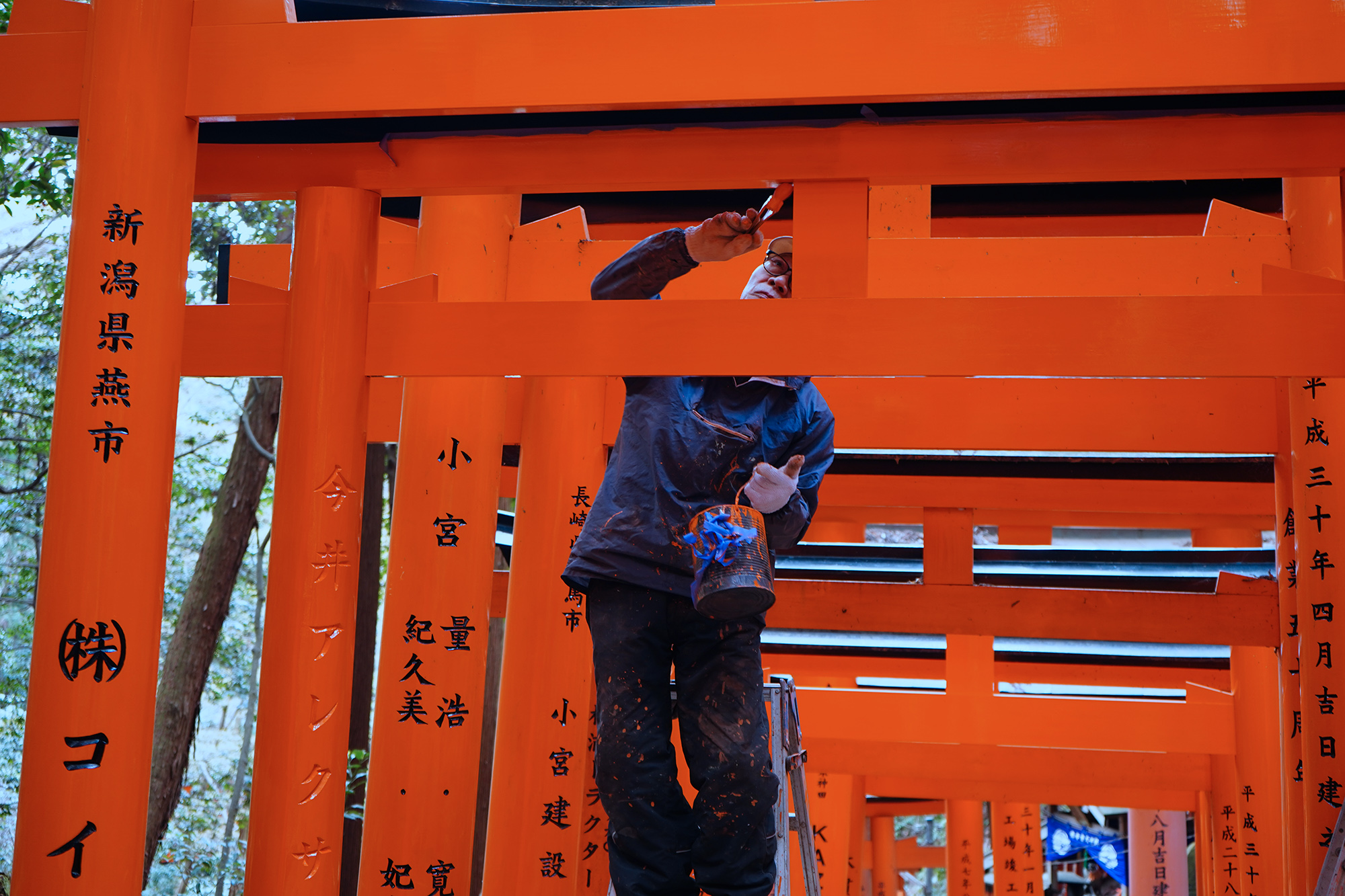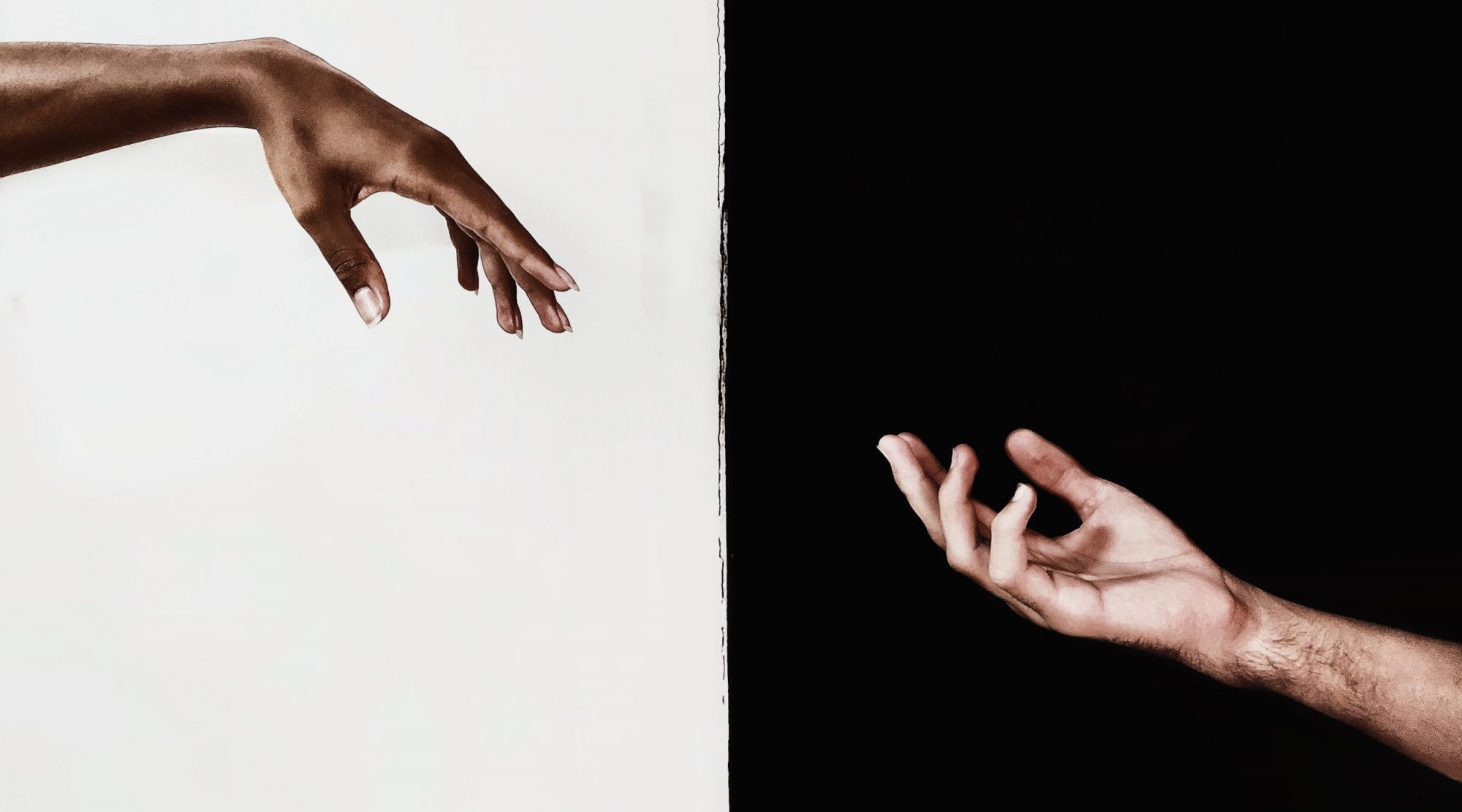Like most things, knives need to be treated with respect so that they can perform in the best way possible. We have identified 7 ways in which you are probably damaging your knife without knowing it. We hope listing these can help you start taking better care of your knives (they deserve it).
1. Putting your knives in the dishwasher
Your kitchen knives should never go in the dishwasher. This will take the sharp edge of your knife and can be a safety hazard for whoever is unloading the machine. Make sure you always wash them by hand. For more information on this check out our blog on 3 Ways you may be ruining your Japanese knives.
2. Air drying your knife
Building on from the previous point, after hand washing your knives do not let them air dry. It doesn’t matter what type of knife you have (carbon steel or stainless) you need to store them dry. Once you finish cleaning them, dry them thoroughly- that is until they are fully, utterly, extremely dry. They shouldn’t be left to air dry. We recommend you grab a tea towel and dry the knife in short vertical motions perpendicular to the edge. This is because if left slightly moist, the knife will rust.
3. Storing your knives in a drawer
Since we are in the subject of storage, storing your knives properly is of utmost importance. Storing them in your kitchen drawer with other kitchen utensils is a major mistake. In a drawer the knives will be sliding against other metal objects and causing them to become dull more quickly. It is also more likely that you will cut yourself in the process of getting something out of the drawer. Therefore, knives should be stored in blocks, magnetic stands or strips that are approved for knives. For more information on the best way to store your knife check out this blog post.
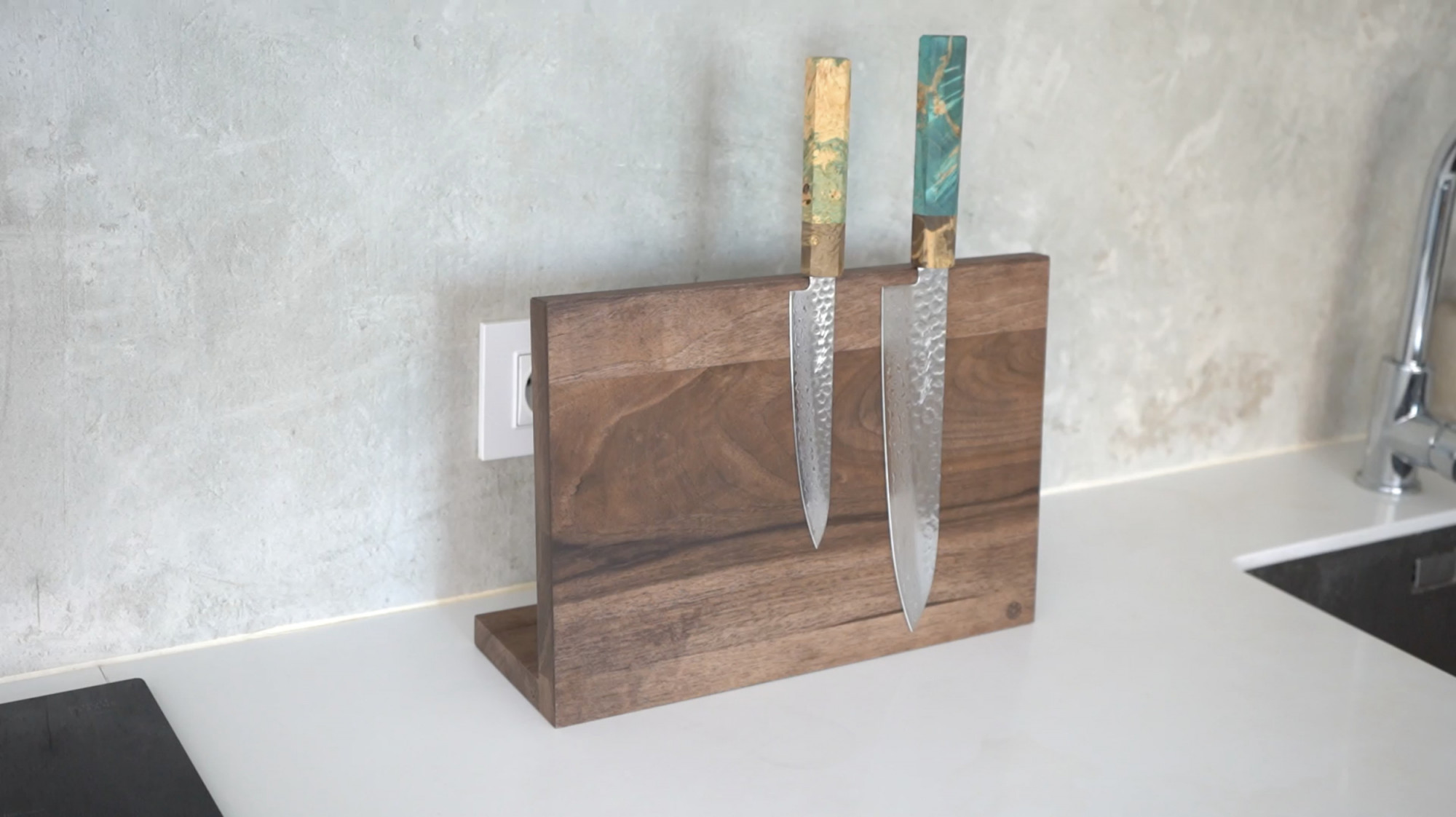
Source: Oishya. This is a knife-approved magnetic stand.
4. Sliding your knife on the chopping board
This is one of the most common mistakes many of us make. It is important to get out of the habit of sliding your knife, blade down, across the cutting board to clear away the produce you just chopped. This is terrible for the blade! An easy way to avoid this is to flip the knife over before sliding. This way the flat side of the blade does the clearing, and your blade isn’t ruined!
5. Using the wrong cutting board
Speaking of sliding things on your cutting board. Did you know that using the wrong cutting board can damage your knives? We recommend you get some professional wooden cutting boards, check out Oishya’s Aomori Hiba Kitchen Cutting Board. We also have a blog post dedicated to what to look for when choosing cutting boards here.
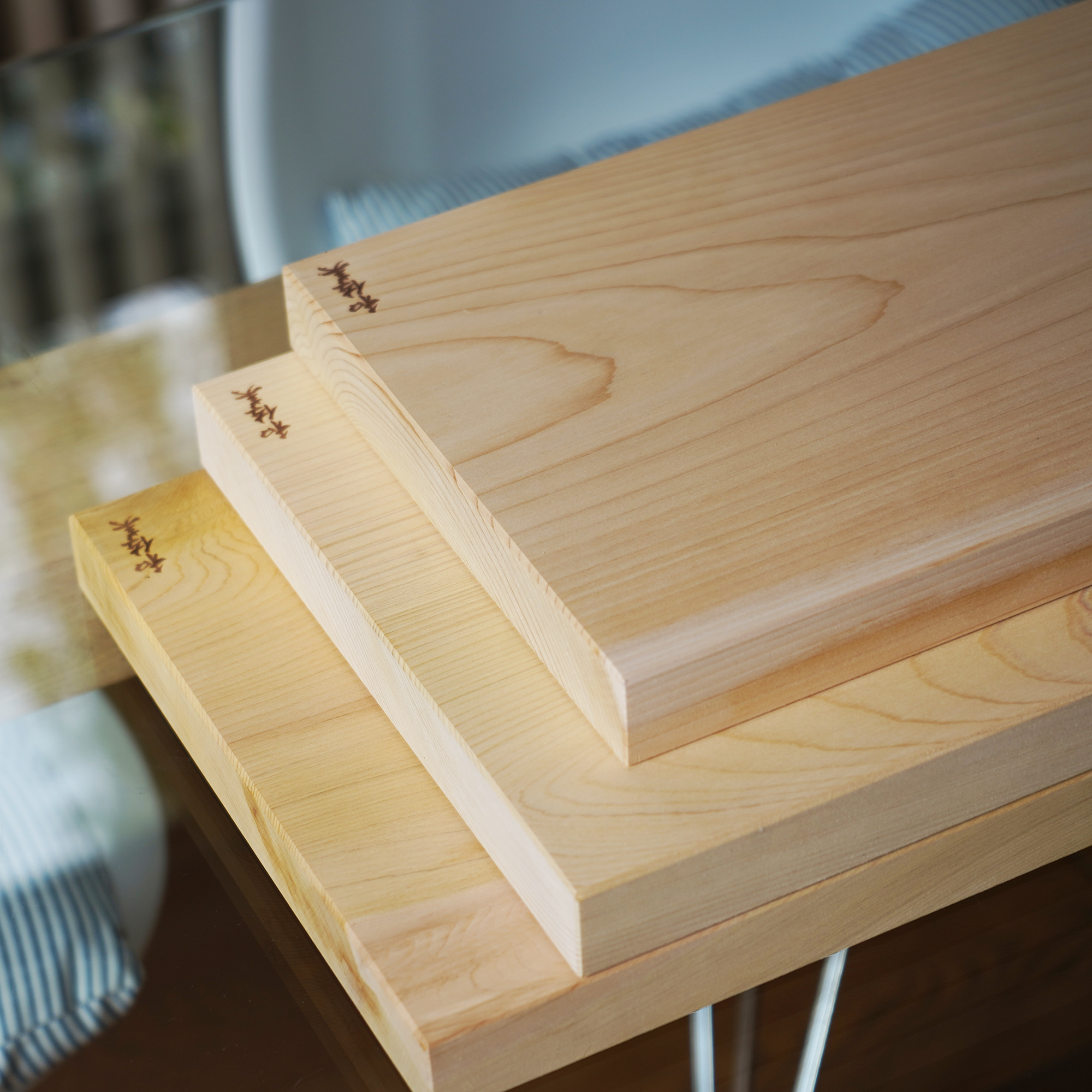 Source: Oishya. This is a high quality wooden chopping board.
Source: Oishya. This is a high quality wooden chopping board.
6. Sharpening your knives
Sharpening your knives improperly or not honing them often can damage your knives. We have made a couple blog posts about how to sharpen your kitchen knives blog post 1 and 2. When sharpening your Japanese kitchen knives, make sure you are using a good quality sharpening stone, we recommend King KW-65 1000/6000 and King Gold G-1.
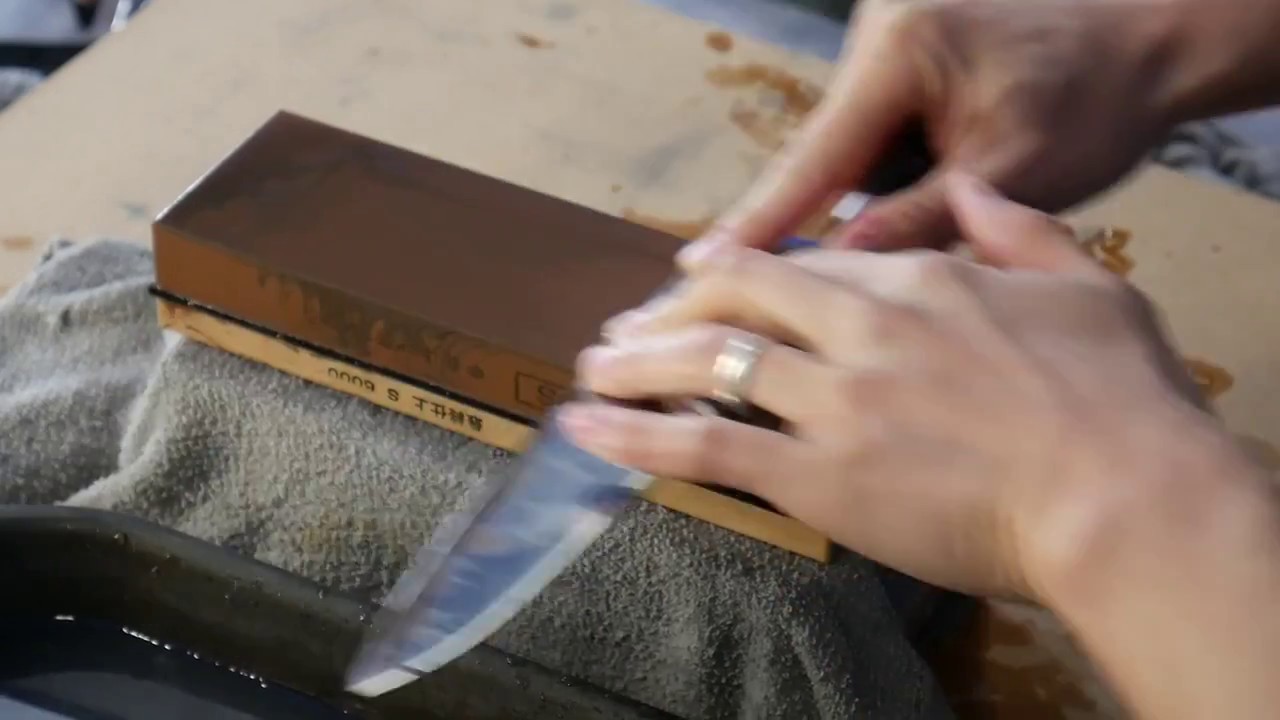
7. Using your knife for things other than food.
We can’t stress this point enough, kitchen knives are made solely for food. In turn, each knife has its specific use, a Chef’s knife is a versatile all-rounder knife, a Veggie Knife is perfect for chopping and dicing vegetables and a Paring knife is used to tackle smaller, more intricate chores like peeling or carving. But we won’t get into specifics here, we simply want to emphasise that kitchen knives should not be used for stuff other than food, for instance:
- Opening delivery boxes
- Using it as screwdriver on your child’s new toy
- Cutting twine off packages or food
- Popping open condiment tops, or opening bottles
- Clearing the drain in your dish disposal
- And any other non-food related use.
